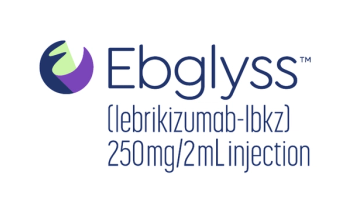
- MHE September 2022
- Volume 32
- Issue 9
UnitedHealth Eliminates Cost Sharing for 5 Treatments
Insulin, albuterol, epinephrine, glucagon and naloxone are on the list.
About 18 million people in the United States, or about 7% of adults, reported that they were not able to pay for at least one prescription medication in their household during the previous three months, according to a 2021 West Health and Gallup survey. The proportion doubled for households with an adult younger than 65 years compared with those older than
65 years.
In July, UnitedHealth Group made a move that could help some of its members facing high drug bills. The health insurer, the largest in the country by several measures, announced that starting January 2023 it will eliminate cost sharing for insulin and four medications that tend to be used in emergencies: albuterol, epinephrine, glucagon and naloxone. The new policy will affect about 8 million people in its fully insured group plans, including 688,000 who currently use the medications. Employees of larger companies that self-insure are not included.
Patients with asthma use albuterol for acute asthma attacks. Epinephrine is used on an as-needed basis for severe allergic reactions, while glucagon is administered in emergencies for low blood sugar. Naloxone is an emergency treatment for opioid overdose.
Its members will benefit from the absence of cost sharing, but so will UnitedHealthcare, the health insurance division of UnitedHealth, says Doug Behrens, CEO of MyFreePharmacy, a monthly subscription service for generic prescription drugs. Adherence should improve and reduce expensive interventions, including hospitalizations, notes Behrens. “It saves (UnitedHealthcare) millions by making sure that their (patients’) $200 vial of insulin is paid for,” he says. There is no argument with that from UnitedHealthcare, which said in a prepared statement that the absence of out-of-pocket expenses “would encourage better medication adherence, reducing the risk of complications and expensive hospitalizations.”
High out-of-pocket costs for insulin are very much part of the political discussion these days. One provision of the Inflation Reduction Act caps insulin out-of-pockets at $35 a month for people covered by Medicare, although the cap does not extend to those with commercial insurance. Other legislation has been introduced that would cap insulin out-of-pocket expenditures for people with commercial insurance, and those bills might be voted on this fall.
UnitedHealth did not answer questions from Managed Healthcare Executive® that would fill in some details about anticipated patient savings and savings the company might realize from lower healthcare utilization.
UnitedHealth and other insurers have been reporting strong financial results lately. Executives said in UnitedHealth’s second-quarter earnings call in July that profit levels exceeded analyst expectations, with revenue up 13% that quarter, to $80.3 billion. Although Behrens believes in low-cost access to medications, he is critical of UnitedHealth’s approach. Aside from the insulin, “they are mostly drugs used for emergency care,” he said. Behrens would rather see no cost sharing for drugs taken daily, such as those taken by many people to lower high cholesterol levels or keep blood pressure in the healthy range. “If they were daily drugs, I would think it’d be more powerful in assisting the members,” says Behrens. “It’s great to get the headlines saying ‘Hey, we’re sharing the cost.’ But it’s grandstanding. It’s not health care.”
Deborah Abrams Kaplan is a freelance writer who covers medical and practice management topics.
Articles in this issue
Newsletter
Get the latest industry news, event updates, and more from Managed healthcare Executive.























